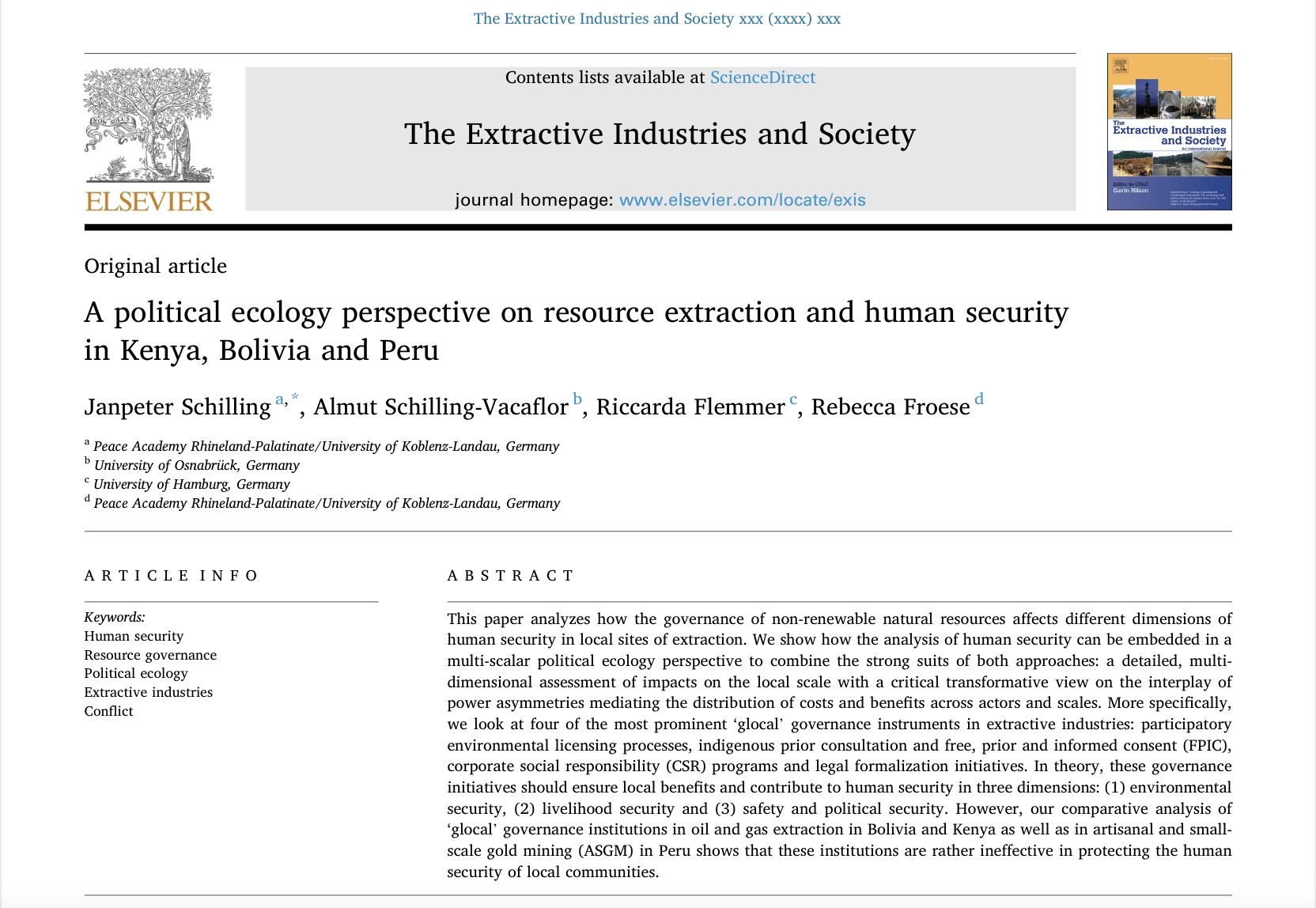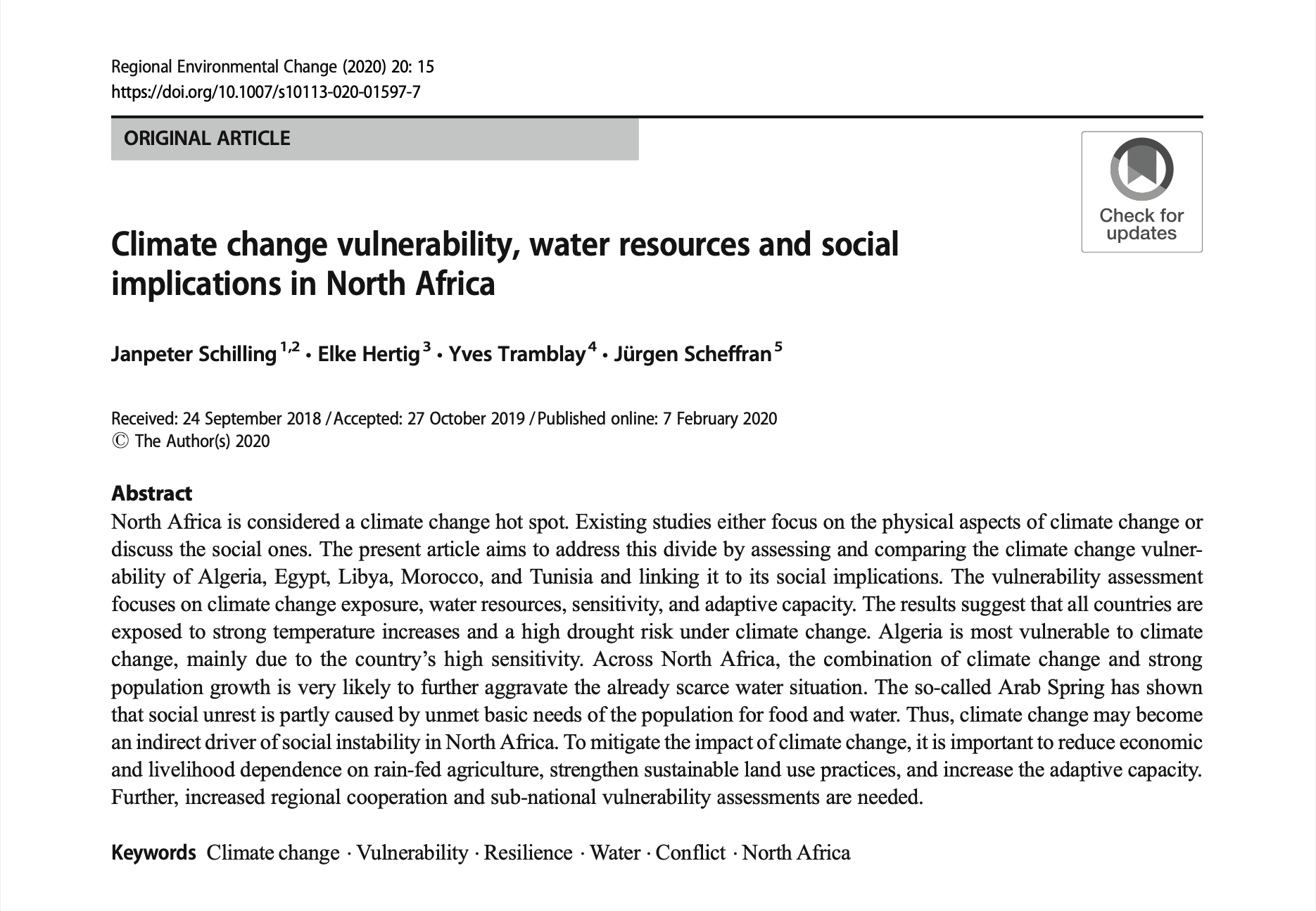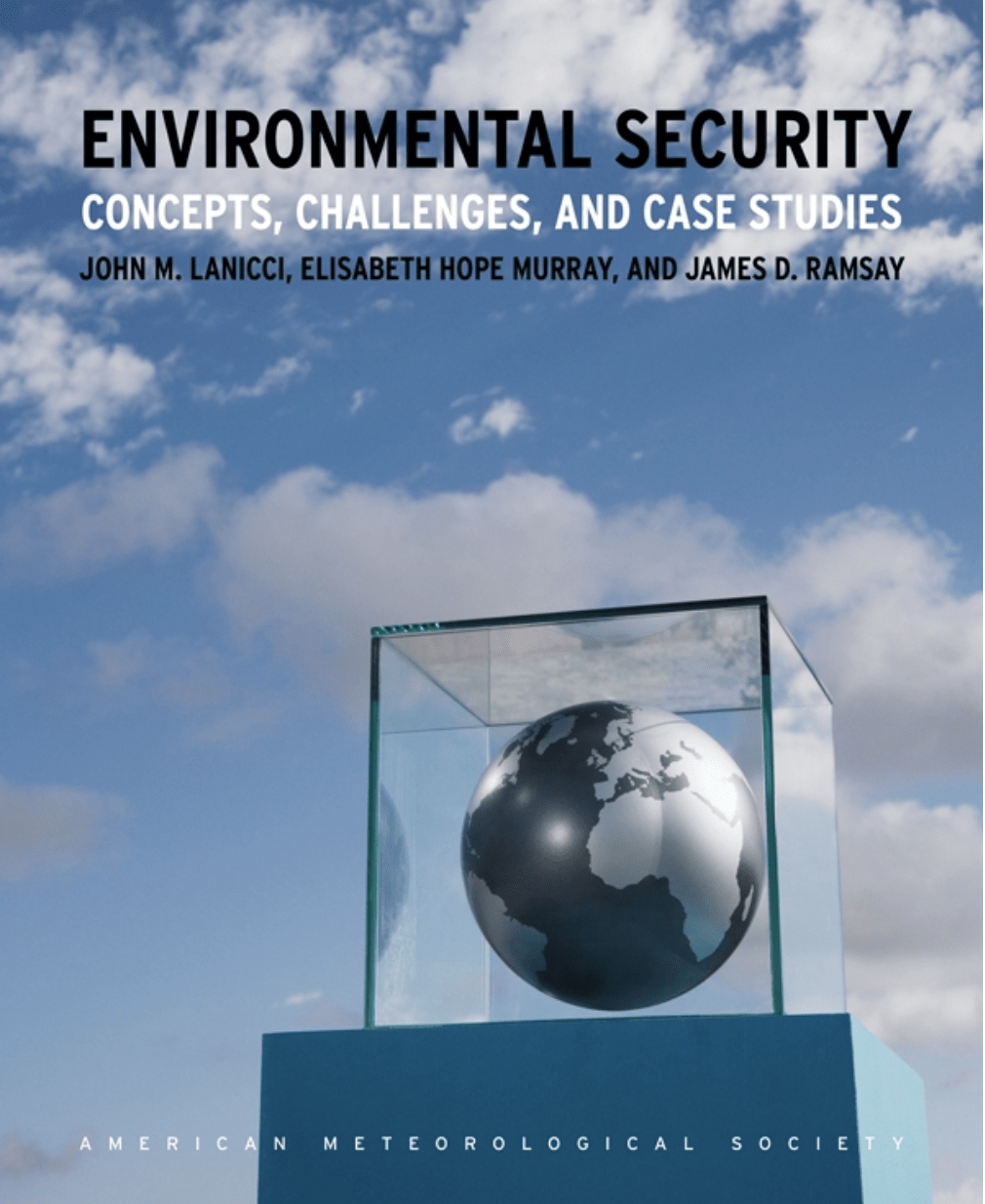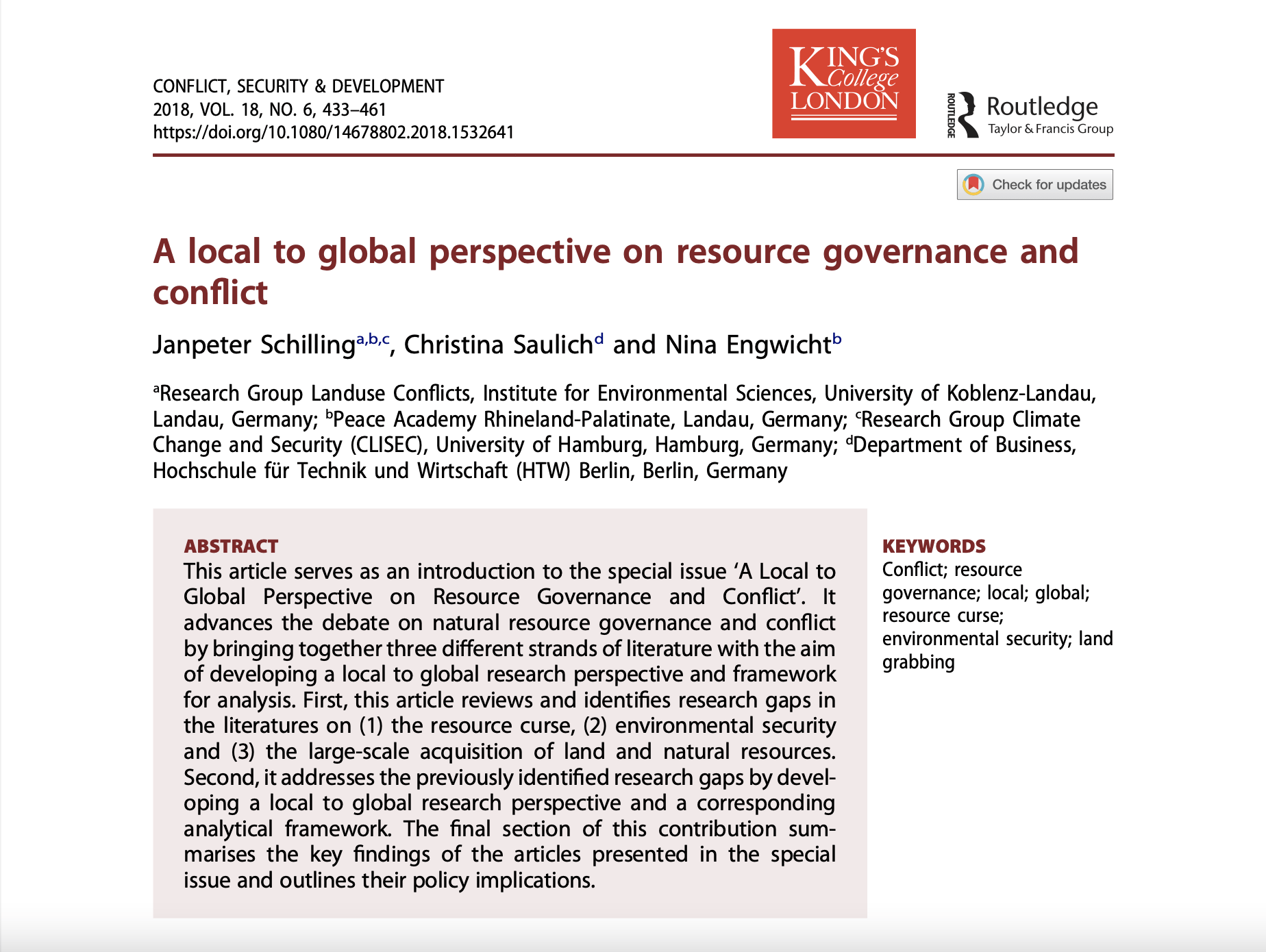︎

Janpeter Schilling
University of Koblenz-Landau
Janpeter Schilling is Professor for Risk- Crisis- and Conflictmanagement at the HWR Berlin. Previously, he worked Junior Professor for Landuse Conflicts, Head of the Research Group Landuse Conflicts at the Institute for Environmental Sciences, and Scientific Director of the Peace Academy Rhineland-Palatinate at the University of Koblenz-Landau. He also worked as associated and postdoctoral researcher in the Research Group Climate Change and Security at the University of Hamburg. He has conducted extensive research in the field of natural resource conflicts, climate change vulnerability, and peacebuilding.
MORE ABOUT JANPETER SCHILLING >Jan 1, 2020
Janpeter Schilling; Almut Schilling-Vacaflor, Riccarda Flemmer, Rebecca Froese
A political ecology perspective on resource extraction and human security in Kenya, Bolivia and Peru
This paper analyzes how the governance of non-renewable natural resources affects different dimensions of human security in local sites of extraction. We show how the analysis of human security can be embedded in a multi-scalar political ecology perspective to combine the strong suits of both approa...

Jan 1, 2020
Janpeter Schilling; Elke Hertig, Yves Tramblay; Jürgen Scheffran
Climate change vulnerability, water resources and social implications in North Africa
North Africa is considered a climate change hot spot. Existing studies either focus on the physical aspects of climate change or discuss the social ones. The present article aims to address this divide by assessing and comparing the climate change vulnerability of Algeria, Egypt, Libya, Morocco, and...

Jan 1, 2019
Janpeter Schilling
An Environment of Insecurity: The Relationship between Environmental Change and Violent Conflict in Northwest Kenya
About the book:
Security threats today are increasingly complex, dynamic, and asymmetric, and can affect environmental factors like energy, water, and food supply. As a result, it is becoming evident that the traditional model of nation-state based security is incomplete, and that purely militar...

Jan 1, 2018
Nina Engwicht; Janpeter Schilling; Christina Saulich
A local to global perspective on resource governance and conflict
This article serves as an introduction to the special issue ‘A Local to Global Perspective on Resource Governance and Conflict’. It advances the debate on natural resource governance and conflict by bringing together three different strands of literature with the aim of developing a local to glo...

